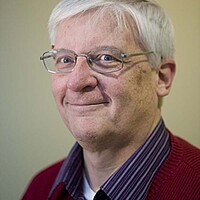Two extraordinary African women tell their stories
Loading...
| New York
Being forced by war or natural disaster to become a refugee presents huge challenges. Just finding food, water, and shelter is a major accomplishment. But if you are a woman, and have a disability as well, these challenges can multiply until they seem insurmountable.
But two young women honored in New York in early May by the Women's Refugee Commission show that anything is possible. Their lives make two important points: As disabled women African refugees they represent remarkable stories of perseverance and courage as they lifted themselves out of dire circumstances. And to top that, they have now taken on a second role, as advocates for the many other disabled women refugees still in desperate need of help.
Dahabo Hassan Maow, from Somalia, first lost her parents and then, at age 14, one of her legs when she was caught in the middle of a firefight on her way home from a market in that war-torn country. She later moved from refugee camp to refugee camp trying to find help.
"When I came to the camp, I couldn't find anyone that I knew," she said in a recent interview with the Monitor. "I couldn't fetch water. I couldn't stand in line for food or wood. I had crutches. I didn't have a safe area to sleep."
She made her way to Nairobi, Kenya, and through the United Nations High Commission on Refugees office there she was connected with the aid group Heshima Kenya.
"[Before Heshima] I would cry every day and every night," she says. "I was thinking, 'How can I change my life?' A lot of people didn't even understand what I was talking about [her special challenges as a disabled person]. The most I could get was 'I'm sorry.' "
Everything changed once she found Heshima. "They started to educate me," she says. "They taught me a trade, how to tie-and-dye clothing, how to sew clothes.
"After that I became a teacher myself, I was teaching others," she says. Today 25 girls in Kenya use her designs.
"Heshima Kenya was my first family, along with the others girls that were living there," says Ms. Maow, who now is married, living in Minneapolis, and expecting a child next month.
“Displaced persons with disabilities remain invisible in so many ways,” says Sarah Costa, executive director of the Women's Refugee Commission. “They are socially isolated and rarely consulted when humanitarian programs are designed and implemented."
As many as 6.5 million of the world's 43.5 million people displaced by conflict live with disabilities, the World Health Organization estimates. Disabled women refugees face special challenges, including social exclusion based on cultural biases. They often are unable to take advantage of the humanitarian aid that is available because of their disabilities. Women and girls with disabilities are also four to 10 times more likely to be the victims of sexual violence than other women.
Aitm Caroline Ogwang was one of her mother's eight children. The family had moved from its native southern Sudan to Uganda to escape the fighting in Sudan. (South Sudan has since become an independent country.)
One day when she was five years old she wandered out of the refugee camp to search for food. As she was picking a mango from a tree an explosion occurred nearby, possibly caused by the Lord's Resistance Army fighters, who was marauding in the area. She immediately found herself deaf.
Ms. Ogwang also tells a frustrating and desperate tale of survival. She, too, ended up in Nairobi; at one point a British family was going to take her in, but they finally concluded that her handicap would be too much for them to deal with.
Ogwang's mother eventually committed suicide – among other causes was her heartbreak at being unable to care for her daughter properly.
It was an aunt who gave Ogwang hope when she felt like she wanted to kill herself. "My aunt said, 'Never give up. Don't hurt yourself. There is a future. That's not God's plan for you,' " Ogwang said through a sign language interpreter in a Monitor interview.
At age 16 she found other deaf refugees from South Sudan that she could talk with using sign language.
"We'd talk about how to make a deaf organization," she says. In 2007 she founded the South Sudan Deaf Development Concern. It had four members, herself and three young deaf men. "We lobbied [the South Sudan] Parliament until they finally agreed to put civil rights for people with disabilities in the Constitution," she told the audience at the Women's Refugee Commission event May 2.
Her life proves that "one disabled woman can change the world," she says.
"I would like to advocate for these deaf refugees. They've been neglected. I'm advocating for equal rights for them. The first to be abducted are deaf girls. It's very important to get them to safe areas where they can be educated."
Ogwang's goal is to become a lawyer and be elected as the first deaf woman member of the South Sudan parliament. "We don't have much time on this earth," she says. "So I want to do what I can for future generations."
Liv Ullmann founded the Women’s Refugee Commission (WRC), now part of the nonprofit International Rescue Committee, nearly 25 years ago. After visiting refugee camps the Swedish actress and humanitarian discovered that although most refugees were women and children, little was being done to ask them about their needs. The mission of the WRC is "to improve the lives and protect the rights of women, children, and youth displaced by war, persecution, and natural disaster."








